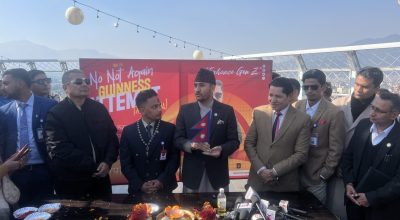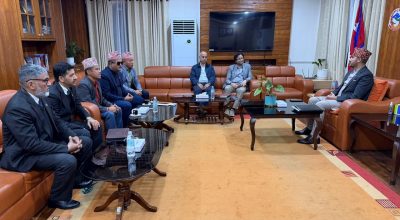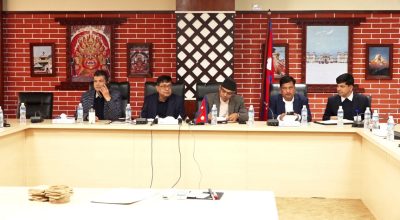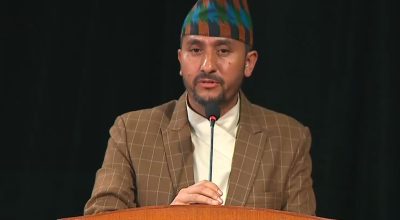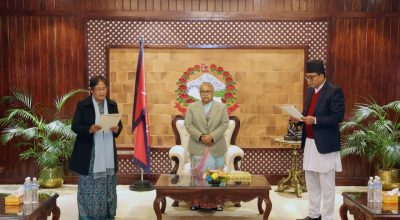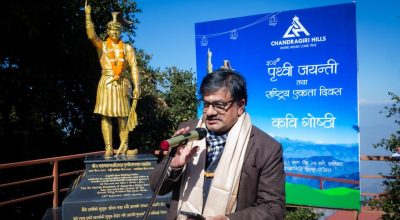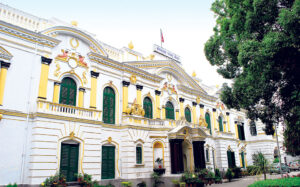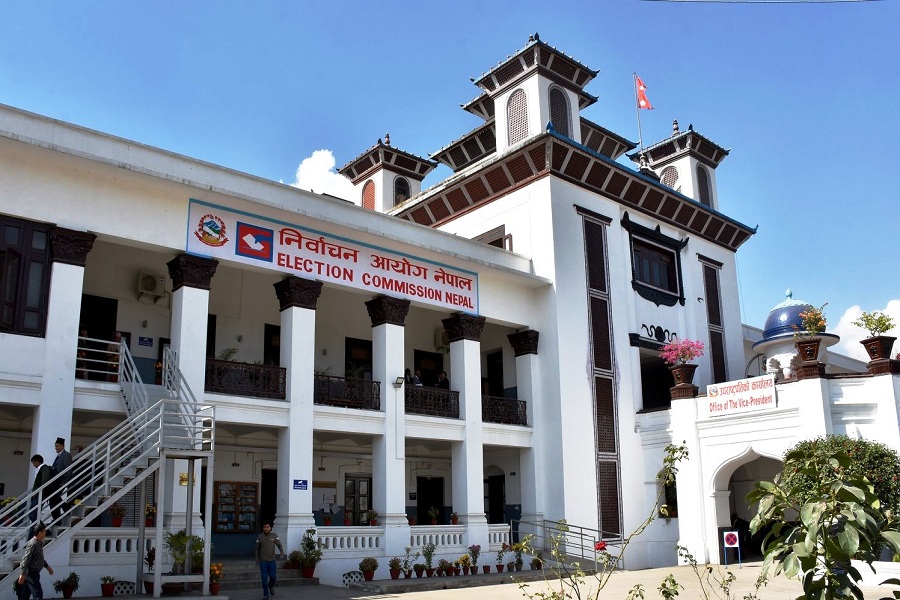
Kathmandu : The Election Commission (EC) on coming Monday is scheduled to meet with political parties for discussion in regard with the upcoming election of the National Assembly (NA).
The EC is preparing for the Upper House election following the completion of the by-election of House of Representatives (HoR) member, State Assembly (SA) members and local level on November 30.
According to EC Spokesperson Raj Kumar Shrestha, it is consulting with political parties in regard with the NA election. The Federal Parliament Secretariat few days back had requested the EC for the election.
In the 59-member NA, the term of 19 members is ending on March 3.
The election date will be declared after the consultation. Of 19 members, 18 will be elected by the election and one will be nominated by the President on the recommendation of government.
As per the provision, the election shall be held 35 days before the term expires.
As said by Chief Election Officer Dinesh Thapaliya, the election shall be held within coming January 29. The term of the one third of NA members is of two years, another one third is of four years and remaining one-third members have a six-year term.
The term was determined by drawing lots as per the constitutional provisions. Who are completing the two-year term Sarita Prasai, Surendra Raj Pandey, Hari Charan Shiwakoti, Rampreet Paswan, Bindya Devi Aale, Brishesh Chandralal, Badri Prasad Pandey, Balaram Baskota, Meena Budha, Mukta Kumari Yadav, Dr Yuba Raj Khatiwada, Yutol Tamang, Ramesh Prasad Yadav, Raj Kumar Yadav, Durga Prasad Upadhyay, Dhan Kumari Khatiwada, Kamala Kumari Oli, Kali Bahadur Malla and Khem Raj Nepali have the two-year term in the NA.
The member in the post occupied by (Finance Minister) Dr Yubaraj Khatiwada will be nominated by the President.
Among those completing the NA’s two-year term, nine are from the Nepal Communist Party, seven from the Nepali Congress, two are from the Rastriya Janata Party Nepal and one is from the Socialist Party.
The NA election voters are chairs and vice chairs of rural municipalities, mayors and deputy mayors of municipalities and the State Assembly members.
The election is based on the first-past-the-post model.
Seven women, two people from the Dalit community, two from minorities community and others seven will be elected from the election.
—





